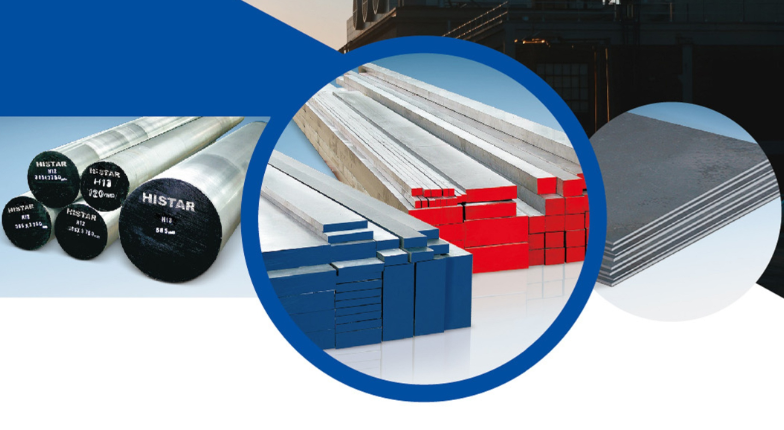Tool steel has a very wide range of uses. Cutting tools, dies, circular saw blade, planer knives, blocks, gages, and drill bits are just some examples of the many different tool steel applications. Along with many different applications, there are also many different tool steel grades available, including cold work tool steels that encompass water-hardening tool steels, oil-hardening tool steels, and air-hardening tool steels. There are high speed steels, hot work tool steels, and shock-resisting tool steels as well. It is necessary to identify the correct tool steel for the job when you purchase tool steel.
Six things to consider when you purchase tool steel include:
1. Will the tool steel be subjected to large impacts?
2.Will the tool steel be used at high temperatures?
3. Will the tool steel be used at high speeds?
4. Will the tool steel be used at low temperatures?
5. Will it be used for plastic molding?
6. Are there special circumstance considerations?
Will the tool steel be subjected to large impacts?
Tool steels are usually hard and brittle. When this material is impacted, it may cause breakage. Shock-resisting tool steels are made to withstand impact better because they have higher toughness than other tool steels. However, compared with other types of tool steels, this increased toughness does reduce hardness and wear resistance. Therefore, shock-resisting tool steel should only be used in applications that require the steel to withstand large, sudden shocks. Examples of shock-resisting tool steels are S1, S5, and S7. Shock-resisting tool steels are frequently used in chisels, shears, and hammers.
Will the tool steel be used at high temperatures?
High temperatures will affect the mechanical properties of steel. This is especially true of tool steels, because many of them have been heat-treated, and reheating them may render that heat-treatment useless. Hot work tool steels are a good option when dealing with high temperature applications because they are less likely to lose their hardness and wear resistance at elevated temperatures. This is because of their relatively high amounts of tungsten and molybdenum. Grades of hot work tool steels include H12, H13, and H21. They are commonly used for casting dies, extrusion dies, and hot shear knives.
Will the tool steel be used at high speeds?
Some tools move so fast that the energy generated causes the temperature to rise, which affects the tool steel in two ways. The first concern is that high temperature will reduce the hardness and wear resistance of the tool. The second problem is that due to many cycles running on the tool in such a short period of time, tool wear will occur quickly. For such operations, high-speed tool steel should be used. They not only have mechanical properties to withstand high temperatures, but also have high wear resistance to prevent the tool from degrading when exposed to multiple cycles in a short period of time. Examples of high-speed tool steels include T1, M2, M7, and M42. They are used in drill bits, cutting blades, and pump components.
Will the tool steel be used at low temperatures?
Cold work tool steels are good choices for low temperature applications. They consist of air-hardening and oil-hardening tool steels. Due to the increased content of alloying elements such as chromium, manganese, and molybdenum, they do not need to be quenched as quickly as water-hardening tool steels. This generally makes them more expensive than water-hardening tool steels, but has the benefit of enhanced mechanical properties. Examples of these tool steels are D2, O1, and A2. They are used for punches, dies, gages, and many more cold-working applications.
Will it be used for plastic molding?
Plastic molding usually requires the use of special types of tool steel. This tool steel belongs to the P-type tool steel series. Except for making plastic molds or molds for low-melting metals, they are generally not used for any other types of tool applications. Plastic mould steels include 1.2311, 1.2738, 1.2038, and 1.2316.
Are there special circumstance considerations?
There are special types of tool steels available for unusual applications. These are usually proprietary. Shanghai Histar Metal can help you determine the best tool steel to achieve the desired mechanical properties.
Shanghai Histar Metal has been focusing on the sales of tool and mould steel since 2003. The products include: cold work tool steel, hot work tool steel, high speed steel, mould steel, stainless steel, planer knives, tool blanks.
Post time: Sep-24-2021

